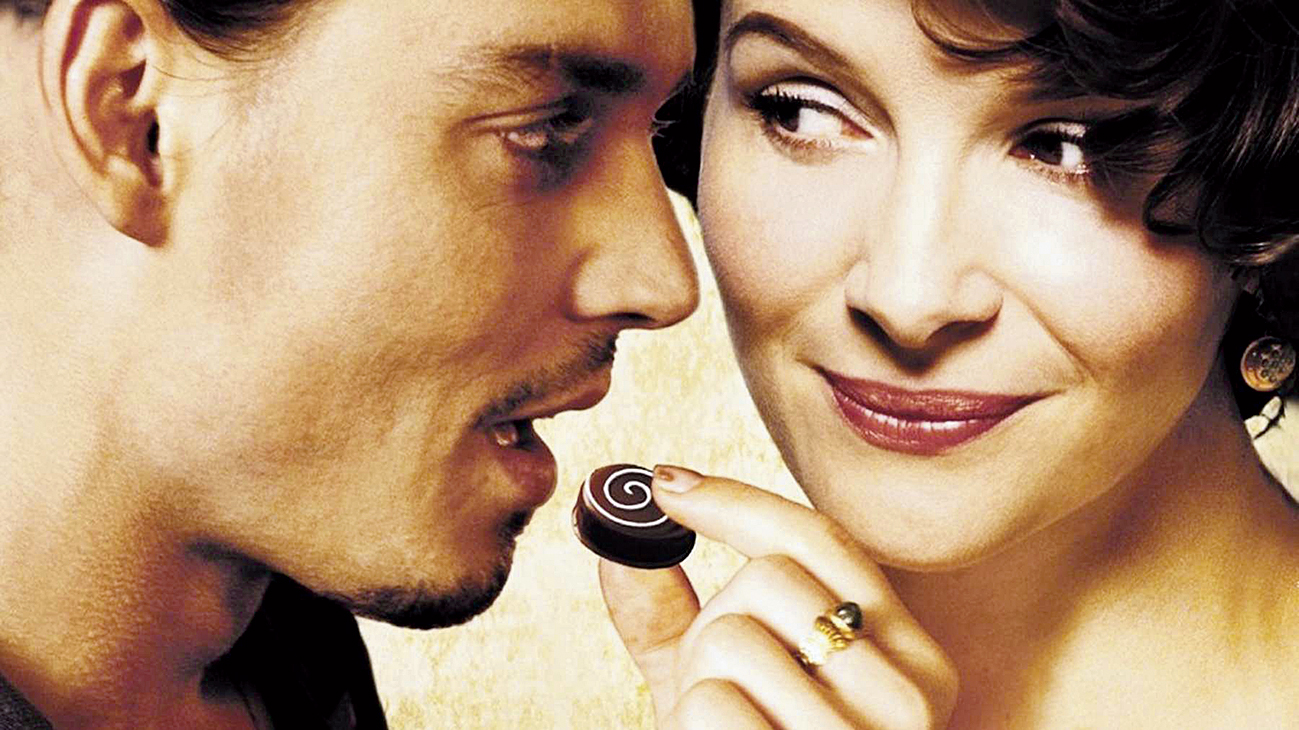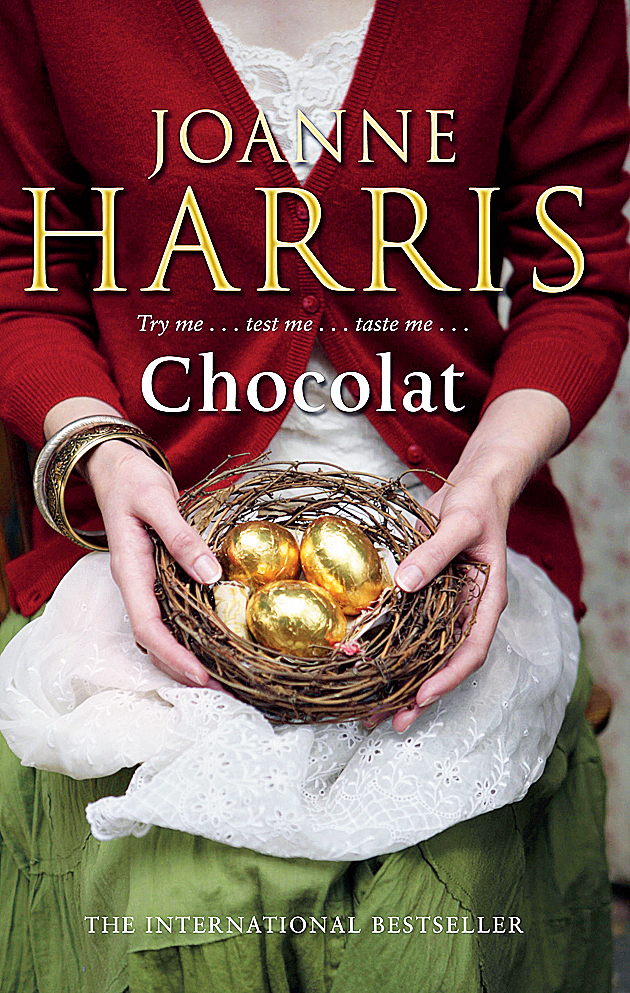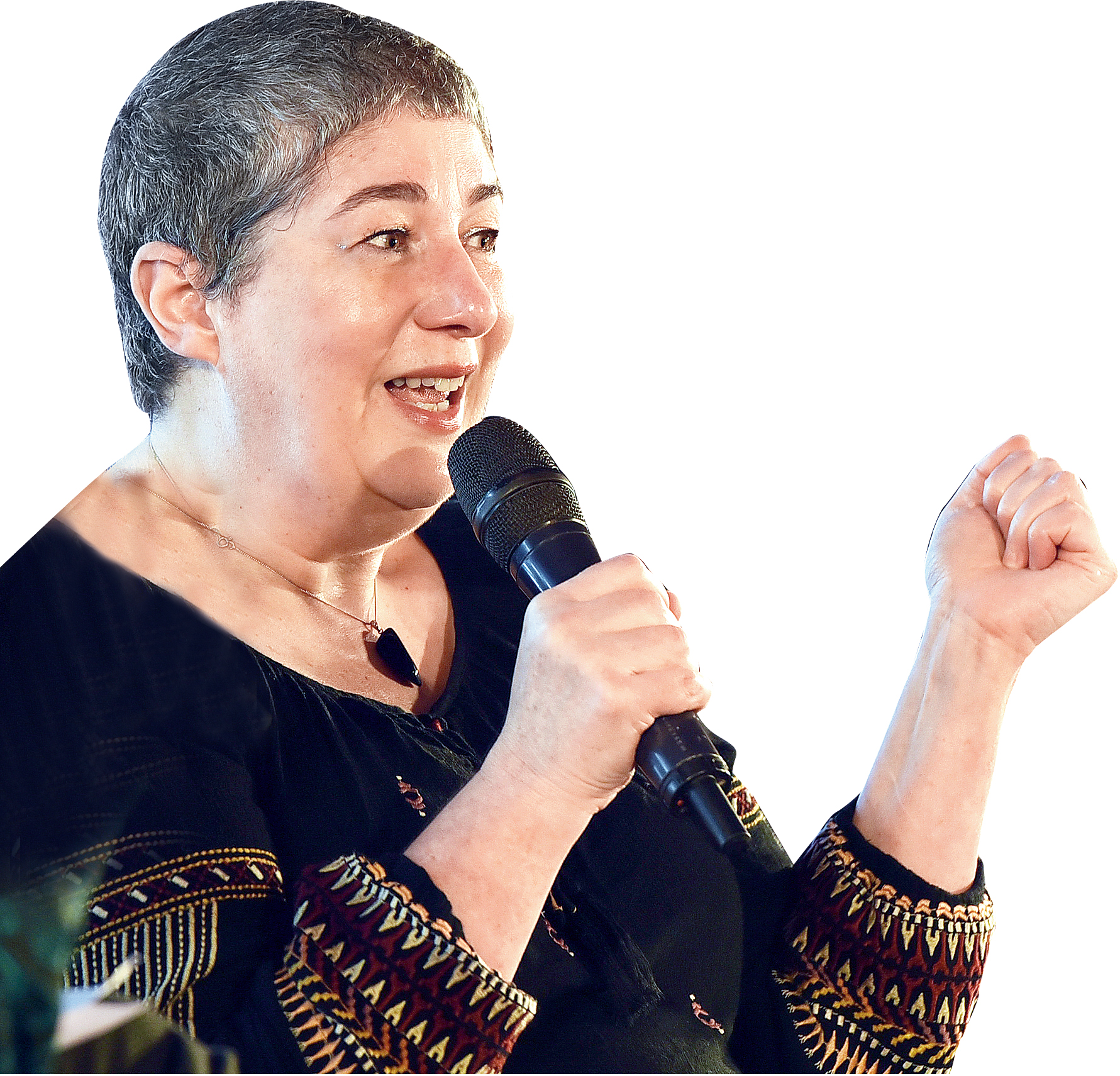Joanne Harris is a writer firm in her resolve to write what she wants, that may or may not be specific to any genre, and without pandering to bestseller norms. Yet her novels have consistently made it to bestseller lists, with her most famous novel Chocolat also getting adapted for the screen and earning five Oscar nominations at that. “I think because I experience the world primarily through colour and scent, I write a lot about sensations, taste and smell and so I think my style is sensually immersive,” explains Harris, when I caught up with her on the sidelines of the Tata Steel Kolkata Literary Meet, held in association with The Telegraph and Victoria Memorial Hall. Minutes before her first session at the literary meet, I somehow succeeded in whisking Harris away to a relatively quiet corner of the otherwise bustling Victoria Memorial for a quick chat, intermittently interrupted by autograph hunters holding well-read, dog-eared copies of her book, and alm seekers. Harris, however, is unperturbed and polite throughout to everyone.
She brings up V.S. Naipaul’s infamous interview when he had said that he didn’t find any female writer, not even Jane Austen, to be his equal, and she is very vocal about the difficulties of being a woman in the business of writing. “It’s never been easy for women authors and when you look at the reaction of some critics to even classic authors like the Brontes — the same things are being said now about the classics of tomorrow,” said Harris, who recently became the chair of the Society of Authors’ (the UK trade union for 11,000 writers) elected board of directors and charity trustees. More than anything, it is abundantly clear that this writer is firmly grounded in reality and its very real concerns, and is more than willing to do something about it. Excerpts from a t2oS chat:
From teaching to writing
Well, it was what I wanted to do but it wasn’t the sort of job that I thought that I’d be able to do, in terms of having to make a living because both of parents were teachers and it was encouraged in me from a very early age to be interested in teaching. And all their friends were also teachers and so I went into teaching and I was very good at it. But I kept writing and when I had my first book published, I did not leave teaching because books don’t make a lot of money, unless you have a big bestseller. I did the same with my second book and when my third book did surprisingly become very successful and more popular than anybody imagined, then I was able to make the decision or, in fact, the decision was made for me because it was too difficult to do two jobs at once. There were too many demands from the publishing side and the exposure from Chocolat was such that I had the press waiting for me at the school gates. So I thought, ‘Okay, this is maybe the time to experiment and to try and see what’s possible’.
And here I am about 20 years later, still thinking of myself very much as a schoolteacher on a very long sabbatical. I enjoyed teaching and loved it but I don’t think I need to ever go back to teaching. But I do school events and sometimes I go into universities and sometimes I’ll teach creative writing. So the teacher in me is always present and is satisfied with the things like seminars on social media.
Ascertaining a voice
My first book was a vampire novel called The Evil Seed and I wrote it when I was quite young, and it was the book that I made all the mistakes in, which I then learnt from. I chose a subject that was deeply unfashionable and very difficult to sell because it was a literary novel but it was also a vampire novel. So people who liked literary novels but don’t really like the (vampire novel) genre didn’t really read it but people who do like the genre felt that it was much too complicated so they didn’t read it either. I think it was read by three-four people, who still sometimes write to me and ask if I’ll ever write another vampire novel and the answer is never say never, of course but probably not. But yeah, I wrote it as a sort of an experiment and I thought I’d get a publisher and realised that they don’t really like getting unsolicited publishers. Having been rejected many times, I finally got an agent who accepted me and got me published and it was received by what we now call a cult readership, which means that it was hardly read by anybody! But that was fine and it was a good experience. But I never believed for a minute that it would make me enough to leave teaching — it was fun and I learnt a lot.
The next book was better though it was still not quite in my own voice. I was slow to develop a voice of my own though I was very good at copying other people’s voices. That was okay and it sustained me for a while and I think it can be a very good learning experience for a young author who hasn’t really properly determined what is it that they’d like to say. And with Chocolat, I went in a different direction completely and it was because I had just had my daughter and was thinking about what it was like to be a mother and got me thinking about my parents. I did it completely for fun, having been told that my style was unfashionable and choice of location was bad and everything I was doing was different from what was popular.
Sensory immersion
I think it’s a bit difficult because I don’t write in one genre — thrillers, fantasy and something that is vaguely called magic-realism. But I write all those things in the same voice, which is my voice. I think because I experience the world primarily through colour and scent, I write a lot about sensations, taste and smell and so I think my style is sensually immersive.
A lot of my readers tell me that when they read Chocolat, they wanted to eat or they could taste what they were reading and even in other books, they could almost sense the space I was going for. And this is what I am going for and I am happy when people tell me that it has worked for them.
Taking risks
It sounds terrible but I have always done exactly what I have wanted. The reason Chocolat was rejected by that publisher is because it was too different from my other book and when it became a bestseller and it was going to be a movie, I gave them something that was completely different — Five Quarters of the Orange. They said they can’t publish it and I said I’ll take it somewhere else. They said they wanted to buy it but didn’t want to publish it immediately after Chocolat. I was very naive and told them that they had to let me do what I wanted and not give me any deadlines because I was anyway writing as fast as I could and it would put me off if they wanted it any faster. I told them I would find someone who did not do those things if they did that. And I wrote them another book that went to the #1 and then they published Five Quarters of the Orange, which also went to #1.
So it became clear to my publishers that my readers were not expecting the same thing from me and I was also surprised. I am grateful to my readers and I think it has given me an immense kind of freedom to take risks. I could never have written Chocolat 2 and 3 after releasing the first book. So when I did follow it up seven years later, I was a different person and could write a different story.
I enjoy the element of risk, discovery and development, which are not at all what publishers want when it comes to making money. But in terms of my growth and development, that’s exactly what I need and my readers are still here, which I am very grateful for.
Chocolat, the book
It happened very fast. My agent was quite impatient with me because I had written this book that was very different from what I had done before as nobody wanted it and he could not sell it. I wrote a book to annoy Al Zuckerman because he had told me about my earlier manuscript that it was too much about food and older people. I was still teaching and it was Easter and had just taken a school trip to France and all the chocolate shops, patisseries and coffee places were full of Easter things and it reminded me of my childhood when I visited my grandfather. It got me to thinking about writing a book on this and it could be full of the tastes and smells of my childhood. So I wrote it very fast and this was a book of less than 400 pages in four months — all in one draft that I did not really look at.
I got myself a new agent, who took it to Frankfurt and it immediately sold to half-a-dozen countries and sold the film rights immediately. She realised quite soon that it would be bigger than anything I had done before. It took England a while to understand that but it was first published in Italy, and they seemed to have understood that story straightaway. It came out after that in America and England.

Harris’s 1999 novel Chocolat that told the story of young, single mother Vianne Rocher and her six-year-old daughter Anouk, set in the fictitious French village of Lansquenet-sous-Tannes, went on to achieve critical fame and five Oscar nominations for its screen adaptation, featuring Juliette Binoche, Judi Dench and Johnny Depp (in picture above) (Picture sourced by The Telegraph)
Vianne Rocher
I don’t think she is me but we do have some things in common and one of them is the way we generally perceive the world and another is this strong bond with our daughter, whom I modelled on my daughter. So I think Vianne is one of those characters who is stuck with me because she has this element I understand and am able to articulate through her.
Having written historical novels, thrillers, short stories and cookbooks, I realised that I could actually go back to that world without feeling that I was going to be pinned there by public demand. So I went back when my daughter was 12-13 and I wanted to write a story on that. Then I went back again when she was in her late adolescence. She is much less rooted in place than I am as she does not find it easy to have a permanent relationship except with her daughters, which makes it strong. I wanted to explore this in different ways in The Strawberry Thief.
Chocolat, the film
I thought it would never happen — all my books have been auctioned multiples times and this is the only one that has become a movie so far. From time to time, they would send me a copy of the script and I was horrified because it was so different but every time I got a copy, it got a little closer to what I imagined. And then I got a phone call out of the blue from Juliette Binoche saying that she had landed the part in my book and that she wanted my advice. This was surprising because I had always wanted her but nobody from the film side had mentioned her — they wanted Whoopi Goldberg and then Gwyneth Paltrow. It turns out that Juliette had read the book and found out that they were casting for it so she decided she wanted it and went and asked for it.
After that, it just seemed very much more intuitively right. Juliette came to stay with me for the weekend and we talked about the script and she spoke to my daughter. I was involved because Juliette wanted me to and the people were lovely. I went to the Oscars when the movie was nominated and this was all because the cast wanted me to be involved. Chocolat went global in a way that I think it would not have done if it had just stayed in print.
Queen’s honour list
It never occurred to me, though I knew it happened from time to time. Authors are not awarded these things as often as sportspersons and politicians. It was an honour but I am not especially concerned about honours — it was a good thing for the whole world of literature that I got it because whenever somebody from that world gets an honour like this, there’s a sort of positive effect on it. I am on the management committee of the Society of Authors and I am constantly campaigning for authors to be recognised and be paid and treated fairly.

'A lot of my readers tell me that when they read Chocolat, they wanted to eat or they could taste what they were reading and even in other books, they could almost sense the space I was going for. And this is what I am going for and I am happy when people tell me that it has worked for them' (Picture sourced by The Telegraph)
Business of writing
It’s never been easy for women authors and when you look at the reaction of some critics to even classic authors like the Brontes, the same things are being said now about the classics of tomorrow. You’re still getting a division between what women write and what men write. Even when they write the same things such as about human relationships and domesticity, men get rewarded and women get labelled. It’s something that we really need to be aware of because the society has changed since the Brontes but the world of literary criticism hasn’t. Women are expected to take the second place despite being in the majority. We get fewer reviews, fewer prizes and when men write something commonplace like, say, a relationship, they seem to be writing for posterity but when women write about relationships, they seem to be writing chick-lit, which is not perceived as a literary genre. This is also true for men who write love stories.
There’s sort of this double thing in the literary world where they think that if they write a particular genre then they won’t make it to the literary lists. This is true in films, too, when we look at the recent rush of Oscars and Baftas. It’s very clear that stories of men and violence are important and stories of female relationships, their lives, domesticity and struggles are not seen as relevant. It’s an interesting thing and the more we talk about it, the better.
It’s also galling when a man writes about something women-centric despite women having written about it for years and years, and are celebrated. It’s like when a man does housework or looks after his own child, people call it babysitting instead of parenting.
There are quite a lot of articulate, intelligent women who have had enough and are saying so. It also does not help when men who have an enormous standing in the literary community say stupid and ignorant things about women’s writing, when they haven’t read any. I am thinking about an extremely famous author who famously said that no woman has ever written as well as a man and not even Jane Austen.
